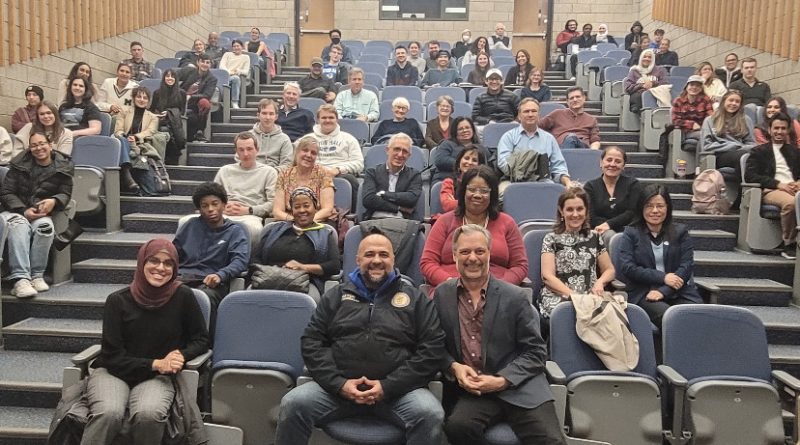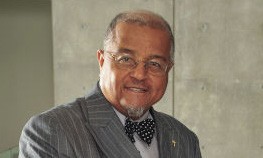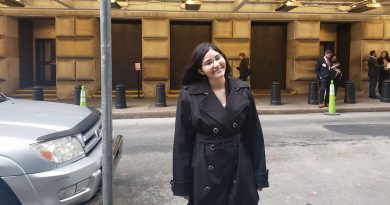On-Campus Group Successfully Screens SHU Professor’s Film
Christopher Benitez Cuartas
Associate Editor
The documentary film “Mayor Mohamed” was screened on October 22 in Schwartz Hall, viewed by a full house. The screening was organized by Scholars 4 Syria, an on-campus advocacy group for the Syrian opposition.
“Mayor Mohamed” premiered at the Brooklyn Film Festival in June 2021 and was also screened at the Montclair Film Festival. The 2021 film, which focuses on Mayor Mohamed T. Khairullah of Prospect Park, is directed by professor Jeffrey Togman of the political science department. At the end of the screening, Khairullah made a surprise appearance, entering the auditorium to rounds of standing ovation.
A Syrian immigrant and a Democrat, Khairullah is mayor of Prospect Park, a small North Jersey suburb approximately half an hour from Seton Hall University’s campus. The film covers his 2017 reelection campaign against a Republican opponent who aligns herself with Trumpian populism and accuses Khairullah of attempting to impose “Sharia law” on account of his faith. At the same time, Khairullah organizes and gathers funds and needed material to send to his native country, engulfed in a civil war, to aid citizens whose hometowns were levelled by Russian air strikes. The film documents the mayor’s journey with his wife and youngest daughter to reunite their family, which was impacted by the strikes.
In the documentary, Mayor Khairullah emphasizes pride for diversity and the concept of America as a “nation of immigrants” in his interviews, campaigning, sessions, and conversations with his constituents. The film also follows Intashan Chowdhury, a young aide who the mayor describes as his “right-hand man,” with Chowdhury calling Khairullah his “second father.” The film closes with Chowdhury being sworn in as borough administrator.
In a pre-screening interview with the The Diplomatic Envoy, Togman said the film was inspired by the unfolding of current events in Syria. He emphasized, “I don’t make films about people, I make films with people, and so [Mayor Khairullah] was interested in the project and that’s how it took off.”
Togman had a clear purpose in directing the film, explaining that the documentary could help Americans better understand the situation in Syria. He described wanting “to find people who could act as a bridge… I was looking for Syrian Americans who were connected, part of the American community, and knew how to communicate with Americans.” By involving people who were familiar with the situation in Syria, he hoped to accurately convey it to Americans.
To present a full picture of the election for the documentary, Togman worked with the Republican candidate who ran against Khairullah. Togman said “We had a very good working relationship. She is not happy with the film, but I’m grateful for her participation and for her willingness to have her own voice included rather than just being an object of the film. She is also a subject…without her participation, we would have had a smaller picture.”
In the question and answer session after the film, the mayor and the director received praise from many. One viewer, an alumna of Passaic County Technical Institute—where Khairullah worked as a teacher before getting involved in politics—expressed her gratitude for the mayor’s work in his community and on behalf of the Islamic-American community.
When discussing his film’s impact on the community, Togman explained that after watching it “people will appreciate the blessings we have when we complain about our coffee, our parking spots: simple things. There are people that have much, much dire needs who have to really struggle to get them.”
The mayor and the professor were asked about the impact this film can have on future generations of Americans when taught about the polarization of today. Togman insisted that it was up to today’s students to combat it. He said, “This is like a drop in the bucket of all the things you come across…The torch is being passed; It’s up to you.” The mayor commented similarly on the power of media, especially relating to his time spent in Turkey and Syria. Khairullah described the times he had been stopped by Syrian government minders, commenting “Right there, you’re not dealing with law. You’re dealing with factions, and your life could be worth only the bullet they put in your head…The fact that such film can convey the truth—and some people don’t want that truth to come out—I think is important.”



